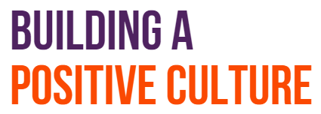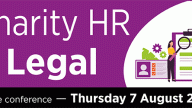Management & leadership, Personal development, Self-improvement
How has DSC built a positive culture?
Discover the techniques DSC uses to build a positive culture from Eileen Browne, DSC Training Consultant.
When asked to write a course or a blog such as this I always find myself seeking the definition of the key word and so I’m happy to use this definition.
Culture is the ideas, customs and social behaviour of a person or society.
So when considering what I was going to write about DSC (the society) it seemed clear to me that DSC’s organisational culture is actually about individuals, what we experience, how we are treated, what and how we feel. That feeling for me is one of safety, it is knowing that I matter, that I will be spoken to and treated with respect, by my manager and peers, that what I have to say will be listened to, even if not agreed with.
I am one of the Training Consultants at DSC and so get to meet different people (albeit online) and find out about how they and their organisations work. Sadly that feeling of safety is not everyone’s experience and so whilst training I have found myself regularly saying “and this is how we do this at DSC” or “this is what this looks like at DSC”. This sharing of our vision, purpose, expectations and experiences was not a conscious decision, I simply found that I could with all honesty and integrity give examples (suggestions and sometimes advice when requested) that helped demonstrate a point or theme. Culture is walking the walk. So when a delegate, a CEO or HR Manager scribbles down Welcome Card and says to me “what a great idea, we are going to start doing that” I know that DSC’s culture is helping to change or enhance the culture of other organisations. I’m happy to share some examples:
Every new employee gets a welcome party (even online) and that includes a message from Debra, our CEO about why they were chosen to join us, the difference they are going to make in their role, the impact they are going to have. I recall having those feelings of apprehension, maybe a little fear of this new venture begin to ebb away and being replaced by a feeling of reassurance.
Renditions of Happy Birthday on zoom is a sound to behold and no I don’t mean it is a melodious, well synchronised rendition. In fact, I’m not absolutely certain everyone is singing the same song however that is not the point. It matters that the birthday is being recognised and celebrated (unless expressly told not to). That along with a birthday card with a personally written message from Debra dropping through our letter box means that a process has been set up way in the back office of DSC to make sure this happens. It doesn’t happen by accident. Oh and by the way, we get our birthdays off.
DSC’s culture is about being open and telling us when things are tough and what is needed to steady the ship. There is nothing worse than blissful ignorance followed by an unexpected, horrible surprise. I know, I’ve been there. As adults we don’t need to be protected from what is real and the culture of accurate, truthful communication underpins just about everything else. That communication includes specific or unambiguous recognition and praise for a job well done also.
Does DSC always get it right? Of course not, however our culture is not to hide from or worse, dismiss any of those feelings I mentioned are not so positive. We can speak up as individuals or as a collective because we have a process for that called Staff Forum. Expressing any concerns or things we as employees disagree with can be raised with our CEO and Directors for consideration, clarification or action.
Culture isn’t done to us it is the way we do things at DSC. Culture is a course of action. Culture is how our lived organisational values of being Empathetic and Excellent are reflected back to us as employees. Long may it continue.
Organisational culture is explored more in the session Putting the culture into people, at the upcoming HR and Legal online conference on Thursday 7 August. Find out more and book your tickets here.


